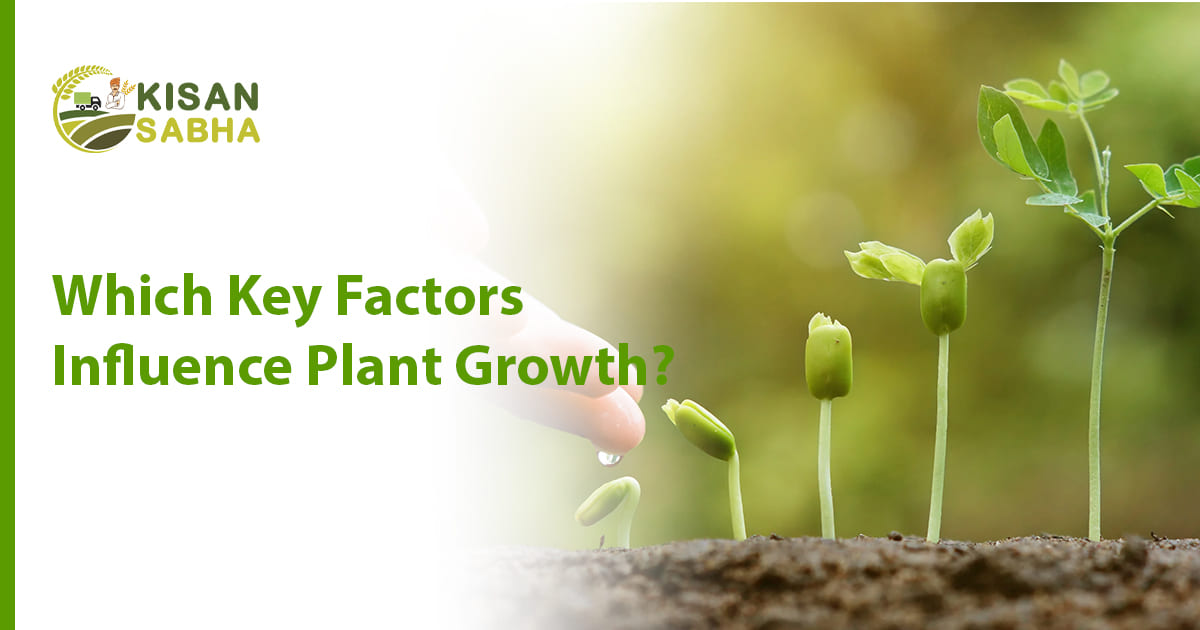It is critical to understand what plants require to grow when planting a flower bed or a vegetable garden. Four major factors can influence plant growth. They are water, light, nutrients, and temperature. These four factors influence the plant’s growth hormones, causing it to grow quickly or slowly. Making changes to any of these four factors can cause stress in the plant, which can alter, stunt, or improve growth.
It is critical to learn as much as you can about these four factors so that you can plant your garden accordingly to achieve a lush and healthy garden. Water, light, temperature, and nutrients are the four most important factors influencing plant growth. You might be wondering where soil fits into all of this. Plants can grow without soil using a technique known as hydroponics. Plants, on the other hand, cannot grow if they are not provided with the necessary nutrients.
Let’s take a closer look at each of the four factors that can have an impact on plant growth.
4 Key Factors for Plant Growth
- Light
Plants have evolved over time in various locations around the world. Some plants evolved in tropical environments beneath the canopy of large trees, while others evolved on the slopes of harsh mountain ranges. As a result, plants have adapted to various types of light. Some plants are incapable of adapting to new conditions. If you want your plants to grow, you must first understand what kind of light they require and then provide it for them.
The intensity of light varies from season to season. Because the days are shorter in the winter, there is less light. During the spring, the amount of light available increases, as does its intensity. The changes in light and temperature that occur in the spring will stimulate plants to emerge from dormancy and begin to grow new leaves.
- Water
Plants require water to survive. The majority of plants are nearly 90% water. Plants will become stressed and eventually die if they do not receive adequate water. Even desert plants, such as cactus, require water; they just require less of it than other types of plants.
Water provides nourishment and hydration to plants. Water in the soil will break down minerals and other soil elements. When plants absorb water through their roots, they also absorb nutrients, which travel to the plant’s cells.
- Temperature
Plant growth is influenced by the weather or temperature. Depending on the temperature, plants will either slow or accelerate their growth rate. Warm weather promotes growth and germination. A higher temperature causes a chemical reaction inside the cells of a plant, which speeds up respiration, transpiration, and photosynthesis. Plant growth is faster during warmer periods and slows or stops during cooler periods.
- Fertilizer for Nutrients
Using natural compost or manure in the soil is one of the best ways to ensure proper plant growth. These will replenish the soil’s nutrients while also providing new nutrients to the plants. Using fertilizer is not the same as providing nutrients to the plant. Most fertilizers, in fact, only contain phosphorous, potassium, and nitrogen, with no other micro and macronutrients that promote plant growth.
Plants that are diseased are likely to be deficient in micro or macronutrients. For example, blossom rot on tomato plants is frequently caused by a calcium deficiency. Plants, like people, will be affected and less likely to produce desired results if they do not have a healthy diet of the nutrients they require.
Conclusion
If you want to have a healthy garden, you could spend months researching all of the plant growth factors. The most important thing to remember is that if you use good gardening techniques, you will grow healthy plants. Make sure to rotate your crops regularly and add compost and manure to your soil at least once or twice a year to provide your plants with the nutrients they require to survive.




